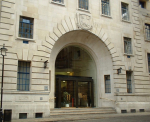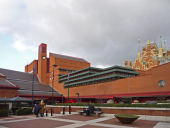UK News
-
 UK government unveils £9bn plan to upgrade military homes
Thousands of military homes across the UK will be renovated, modernised, or completely rebuilt over the next decade under a new £9bn government initiative aimed at improvingRead More...
UK government unveils £9bn plan to upgrade military homes
Thousands of military homes across the UK will be renovated, modernised, or completely rebuilt over the next decade under a new £9bn government initiative aimed at improvingRead More... -
 Two arrested after multiple stabbings on Cambridgeshire train
Two men have been arrested on suspicion of attempted murder following a mass stabbing on a train travelling through Cambridgeshire on Saturday evening.Read More...
Two arrested after multiple stabbings on Cambridgeshire train
Two men have been arrested on suspicion of attempted murder following a mass stabbing on a train travelling through Cambridgeshire on Saturday evening.Read More... -
 King pushes to strip Andrew of final military title, Defence Secretary confirms
The Ministry of Defence is preparing to remove Andrew Mountbatten Windsor’s final honorary military rank at the direction of King Charles, Defence Secretary John Healey has confirmed.Read More...
King pushes to strip Andrew of final military title, Defence Secretary confirms
The Ministry of Defence is preparing to remove Andrew Mountbatten Windsor’s final honorary military rank at the direction of King Charles, Defence Secretary John Healey has confirmed.Read More... -
 £4.5m boost to expand veteran housing across the UK
Nineteen housing providers across the UK are set to receive £4.5 million in new funding to build and upgrade homes for veterans and their families.Read More...
£4.5m boost to expand veteran housing across the UK
Nineteen housing providers across the UK are set to receive £4.5 million in new funding to build and upgrade homes for veterans and their families.Read More... -
 TfL probes alleged antisemitic incident involving London bus driver
Transport for London has launched an investigation after a Jewish passenger reported being trapped on a bus for more than an hour by a driver who allegedly made antisemitic remarks andRead More...
TfL probes alleged antisemitic incident involving London bus driver
Transport for London has launched an investigation after a Jewish passenger reported being trapped on a bus for more than an hour by a driver who allegedly made antisemitic remarks andRead More...

Culture
-
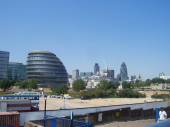 London launches Inclusive Talent Strategy to drive skills revolution and open up new job opportunities
London Councils and the Mayor of London have unveiled a new Inclusive Talent Strategy, backed by a £147.2 million investment aimed at transforming the capital’s skills system and supportingRead More...
London launches Inclusive Talent Strategy to drive skills revolution and open up new job opportunities
London Councils and the Mayor of London have unveiled a new Inclusive Talent Strategy, backed by a £147.2 million investment aimed at transforming the capital’s skills system and supportingRead More... -
 Prince William teams up with Matthew McConaughey, Kylie Minogue, and more for Earthshot Prize in Brazil
In just two weeks, Prince William will be heading to Rio de Janeiro for his fifth annual Earthshot Prize awards — and he’s bringing a star-studded lineup along for the ride.Read More...
Prince William teams up with Matthew McConaughey, Kylie Minogue, and more for Earthshot Prize in Brazil
In just two weeks, Prince William will be heading to Rio de Janeiro for his fifth annual Earthshot Prize awards — and he’s bringing a star-studded lineup along for the ride.Read More... -
 David Attenborough becomes oldest-ever daytime Emmy winner
Legendary broadcaster Sir David Attenborough has made history once again — this time as the oldest winner of a Daytime Emmy Award.Read More...
David Attenborough becomes oldest-ever daytime Emmy winner
Legendary broadcaster Sir David Attenborough has made history once again — this time as the oldest winner of a Daytime Emmy Award.Read More... -
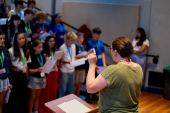 National Children’s Choir of Great Britain opens London auditions across four dates
Children aged 9-19 who love singing may audition to join the choirs from Easter 2026Read More...
National Children’s Choir of Great Britain opens London auditions across four dates
Children aged 9-19 who love singing may audition to join the choirs from Easter 2026Read More... -
 Cheers to change: cutting red tape could bring more food, music and fun to your local
The Government is kicking off a fast-track review to scrap outdated licensing rules that have been holding back pubs, bars, and community events — and they want to hear directly from theRead More...
Cheers to change: cutting red tape could bring more food, music and fun to your local
The Government is kicking off a fast-track review to scrap outdated licensing rules that have been holding back pubs, bars, and community events — and they want to hear directly from theRead More... -
 £20 million boost to keep local museums open and thriving
Millions of people across England will continue to enjoy their local museums thanks to a new £20 million government investment.Read More...
£20 million boost to keep local museums open and thriving
Millions of people across England will continue to enjoy their local museums thanks to a new £20 million government investment.Read More... -
 Robbie Williams’ Istanbul concert canceled over safety concerns
British pop star Robbie Williams announced that his upcoming concert in Istanbul has been canceled after local authorities decided to call off the show due to safety concerns.Read More...
Robbie Williams’ Istanbul concert canceled over safety concerns
British pop star Robbie Williams announced that his upcoming concert in Istanbul has been canceled after local authorities decided to call off the show due to safety concerns.Read More... -
 Aloha London: British Museum honors the Hawaiian Kingdom’s journey across cceans
Two hundred years after Hawaiian royalty first set foot in London, their story will be brought to life in a new British Museum exhibition titled “Hawai‘i: A Kingdom Crossing Oceans”.Read More...
Aloha London: British Museum honors the Hawaiian Kingdom’s journey across cceans
Two hundred years after Hawaiian royalty first set foot in London, their story will be brought to life in a new British Museum exhibition titled “Hawai‘i: A Kingdom Crossing Oceans”.Read More... -
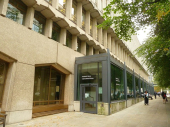 Chained Bibles and tiny dictionaries: 600 years of the Guildhall Library
Six centuries ago, Richard “Dick” Whittington – yes, the very one from the folk tale – left money in his will to set up a library in London. Today, that library is celebrating its 600th birthday...Read More...
Chained Bibles and tiny dictionaries: 600 years of the Guildhall Library
Six centuries ago, Richard “Dick” Whittington – yes, the very one from the folk tale – left money in his will to set up a library in London. Today, that library is celebrating its 600th birthday...Read More... -
 World’s First Youth Culture Museum to open in Camden, London
London is set to welcome the world’s first museum dedicated solely to youth culture this December, based in Camden at the St. Pancras Campus on Georgiana Street. The Museum of YouthRead More...
World’s First Youth Culture Museum to open in Camden, London
London is set to welcome the world’s first museum dedicated solely to youth culture this December, based in Camden at the St. Pancras Campus on Georgiana Street. The Museum of YouthRead More...

British Queen celebrates
Most Read
- Teen held after US woman killed in London stabbings
- Heave-ho Harry! Prince prepares to join the walking wounded in ice trek to North Pole
- Football: Farhad Moshiri adamant Everton deal above board
- "Master of English Style". Interview with Designer Lydia Dart
- Letter to the Financial Times from Lord Mayor Alderman Michael Bear
World News

In the biggest step forward in protecting the world’s forests in a generation, more than 100 leaders will commit to halt and reverse forest loss and land degradation by 2030 at an event

The European Commission has today adopted a Communication that takes stock of the changed circumstances for economic governance in the aftermath of the COVID-19 crisis and relaunches

Today, the High Representative and the Commission put forward their approach for a stronger EU engagement for a peaceful, sustainable and prosperous Arctic. The Arctic region is of key
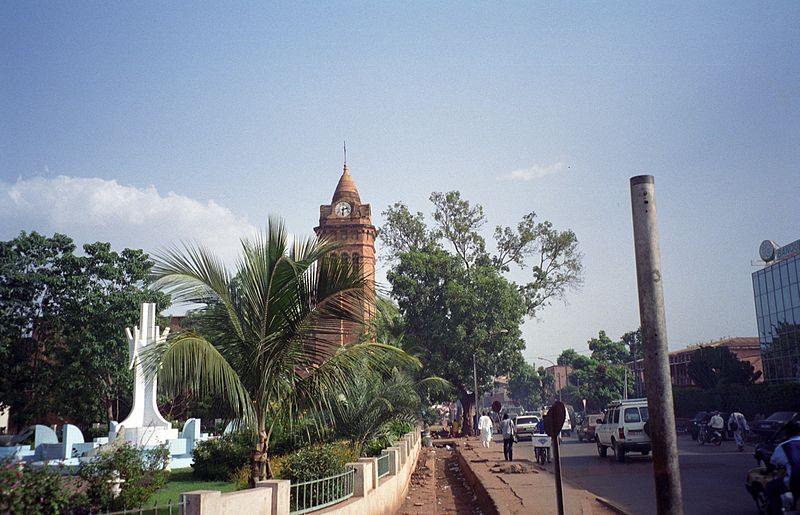
Last May, UN Independent Expert on the situation of human rights in Mali Alioune Tine conducted an official visit to Mali where he had a meeting with the Malian authorities to discuss ways of

The UK and Japan have agreed to commence formal negotiations on a Reciprocal Access Agreement (RAA) to deepen the defence relationship between the two countries.

An EU Humanitarian Air Bridge operation consisting of two flights is delivering more than 125 tonnes of life-saving materials to humanitarian organisations active in Haiti, as part of the EU

24 August 2021, under the Presidency of the United Kingdom, we the Leaders of the Group of Seven met virtually to discuss the situation in Afghanistan. We were joined by the Secretaries

The Mayor of London, Sadiq Khan, has today set out plans to help councils and housing associations across the capital to support the arrival of Afghan refugees.

The Mayor of London, Sadiq Khan, has today welcomed the Government’s commitment to help resettle Afghan refugees in the UK and made clear that London stands ready to help.

The UK has secured a trade deal with Australia eliminating tariffs on all UK goods and boosting jobs and businesses across the country, in the first major trade deal



















